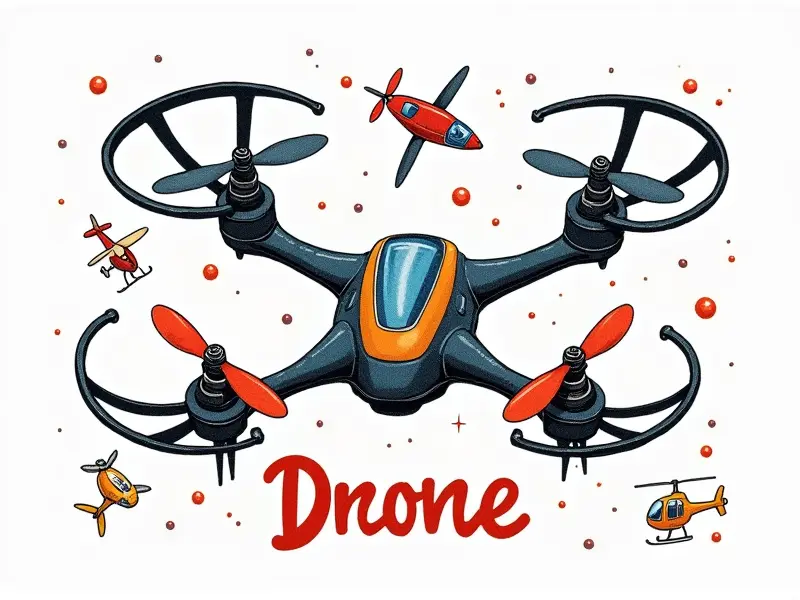Are RC planes eco-friendly?

Are Electric RC Planes Better for Earth?
The debate over whether electric remote control (RC) planes are better for the environment than their gas-powered counterparts is a critical one in the world of model aviation. As environmental concerns grow, enthusiasts and manufacturers alike are turning to electric propulsion systems as a more sustainable alternative.
Advantages of Electric RC Planes
- No Emissions: Electric planes produce zero emissions during operation, making them an eco-friendly choice compared to gas-powered models that emit pollutants like CO2 and NOx.
- Lower Noise Pollution: Electric motors are quieter than combustion engines, reducing noise pollution in residential areas where RC flying is popular.
- Easier Maintenance: Electric planes require less maintenance due to fewer moving parts compared to gas-powered models, leading to reduced waste and lower environmental impact over time.
Challenges of Electric RC Planes
- Battery Life: The limited battery life can be a drawback for long flights or high-performance maneuvers. However, advancements in lithium-ion technology are continually improving this aspect.
- Cost: While the initial cost of electric RC planes might be higher due to advanced batteries and motors, they often have lower operational costs over time.
RC Plane Emissions and Environmental Impact
The environmental impact of RC plane emissions is a significant concern for those passionate about model aviation. Gas-powered models release harmful pollutants into the atmosphere during operation, contributing to air pollution and climate change.
Emission Types:
- Carbon Dioxide (CO2)
- Nitrogen Oxides (NOx)
- Sulfur Dioxide (SO2)
Impact on Air Quality
The release of these pollutants can lead to poor air quality, which affects both human health and the environment. By switching to electric RC planes, enthusiasts can significantly reduce their contribution to this problem.
Can RC Planes Be Eco-Friendly?
While traditional gas-powered RC planes have a negative environmental impact, there are ways to make RC aviation more eco-friendly:
- Electrification: Transitioning to electric propulsion systems is the most direct way to reduce emissions.
- Sustainable Materials: Using recycled or biodegradable materials for construction and packaging can minimize waste.
The Green Side of RC Aviation
Making RC aviation more sustainable involves a multifaceted approach. From adopting electric planes to promoting recycling programs within the community, enthusiasts are taking steps towards greener practices:
- Recycling Programs: Many clubs and organizations offer recycling options for batteries and other components.
- Educational Initiatives: Workshops and seminars on eco-friendly RC flying can raise awareness about the importance of sustainable practices.
Is Flying RC Planes Bad for the Planet?
The impact of flying RC planes on the environment is not entirely negative. With the right approach, enthusiasts can enjoy their hobby while minimizing adverse effects:
- Educational Value: Model aviation can inspire interest in STEM fields and environmental science.
- Community Engagement: RC flying clubs often engage in community service projects that promote sustainability.
Sustainable RC Aviation Options
To make your RC plane hobby more sustainable, consider the following options:
- Eco-Friendly Batteries: Opt for rechargeable lithium-ion batteries over disposable ones to reduce waste.
- Biofuels: Some manufacturers are developing biofuel alternatives that can be used in gas-powered models, reducing their carbon footprint.
RC Planes: A Threat to Our Environment?
The threat posed by RC planes to the environment is primarily due to emissions from gas-powered models. However, with advancements in technology and a shift towards sustainability, this threat can be mitigated:
- Innovation: Continuous innovation in electric propulsion systems will make them more efficient and accessible.
- Educational Campaigns: Raising awareness about the environmental impact of RC planes can encourage a shift towards greener practices.
Are RC Airplanes Eco-Conscious?
The eco-consciousness of RC airplanes is evolving as technology advances and awareness grows. By adopting sustainable practices, enthusiasts can ensure that their hobby remains enjoyable while contributing positively to the environment:
- Eco-Friendly Designs: Manufacturers are increasingly focusing on designing planes with sustainability in mind.
- Community Support: Engaging with like-minded individuals and organizations can foster a culture of environmental responsibility within the RC aviation community.
RC Plane Impact on the Environment
The impact of RC planes on the environment is multifaceted, encompassing both direct emissions and indirect effects such as noise pollution. By adopting eco-friendly practices, enthusiasts can mitigate these impacts:
- Emission Reduction: Transitioning to electric models significantly reduces harmful emissions.
- Noise Control: Quieter electric motors contribute to reduced noise pollution in residential areas.
Green RC Flying: Is It Possible?
Making RC flying a green activity is not only possible but increasingly necessary. By embracing sustainable practices and technologies, enthusiasts can enjoy their hobby while protecting the environment:
- Educational Resources: Access to educational materials on eco-friendly RC aviation can empower individuals to make informed choices.
- Sustainable Communities: Building a community around sustainable practices fosters collective action towards environmental responsibility.
Can RC Planes Be Eco-Conscious?
The potential for RC planes to be eco-conscious is high, given the advancements in technology and growing awareness of environmental issues. By adopting sustainable practices and supporting eco-friendly innovations, enthusiasts can ensure that their hobby remains a positive force:
- Innovation and Technology: Continued development of electric propulsion systems and biofuels will make RC planes more environmentally friendly.
- Educational Initiatives: Promoting awareness through educational campaigns can encourage broader adoption of sustainable practices within the community.
Conclusion
The question of whether RC planes are eco-friendly is complex but increasingly positive. With advancements in electric propulsion and a growing commitment to sustainability, enthusiasts can enjoy their hobby while minimizing environmental impact. By adopting eco-conscious practices and supporting innovative technologies, the future of RC aviation looks greener than ever.

